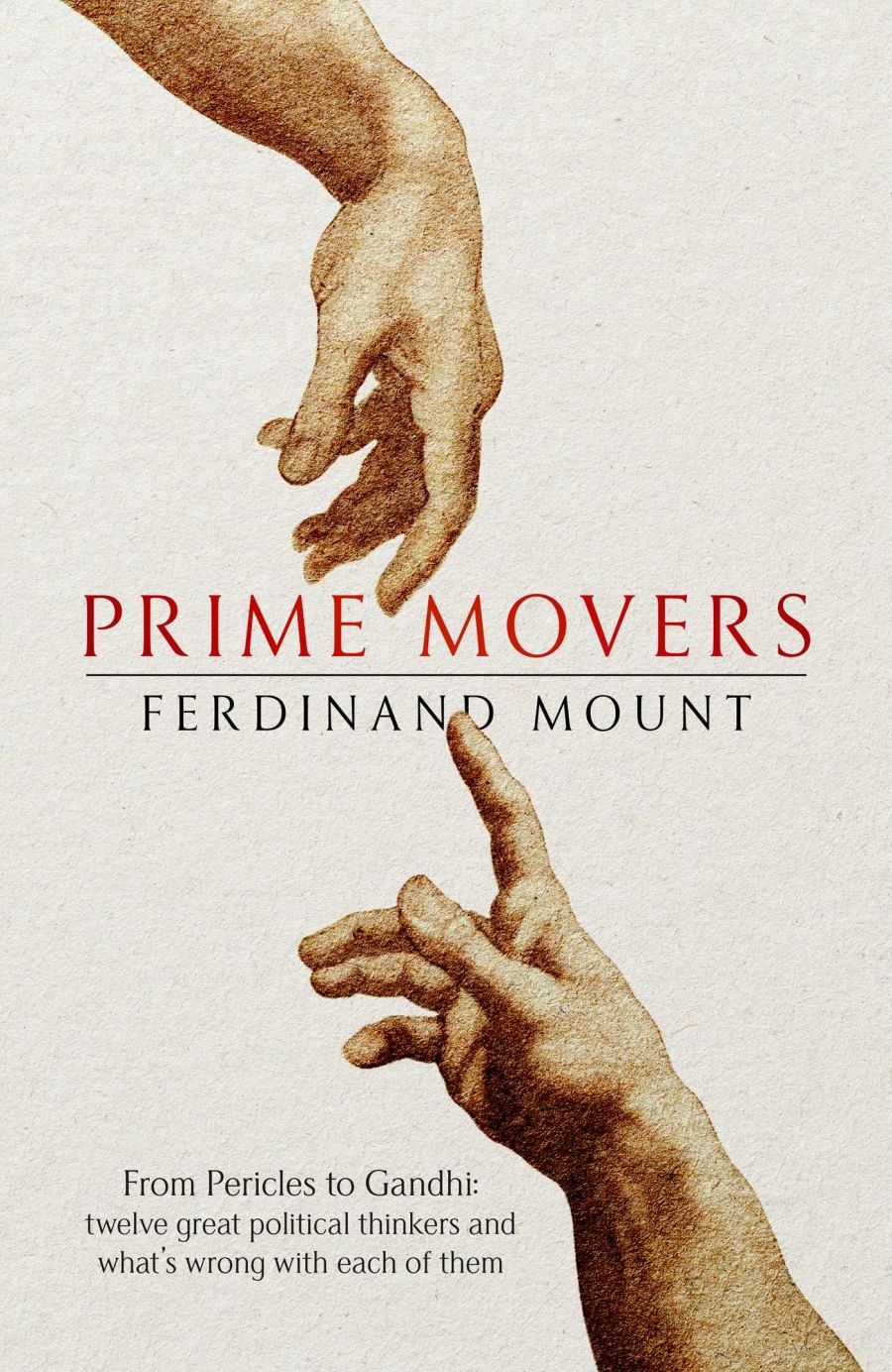
- Free Article: No
- Contents Category: Politics
- Custom Article Title: Glyn Davis reviews <em>Prime Movers: From Pericles to Gandhi</em> by Ferdinand Mount
- Custom Highlight Text:
Describe the twelve most influential thinkers who shaped Western political traditions. Chaos must ensue. Your list will be outrageous, but mine also. Consider whom you leave off the roll-call. Just one woman. No one from Africa or Asia. Only Jesus to represent millennia of Jewish thought ...
- Book 1 Title: Prime Movers: From Pericles to Gandhi
- Book 1 Subtitle: Twelve great political thinkers and what’s wrong with each of them
- Book 1 Biblio: Simon & Schuster, $59.99 hb, 438 pp, 9781471156007
 Mary Wollstonecraft by John Opie c. 1797 (photograph via Wikimedia Commons)
Mary Wollstonecraft by John Opie c. 1797 (photograph via Wikimedia Commons)
Sometimes the sins are personal, not intellectual. This is less persuasive. Mohandas Gandhi may have neglected his family, and Mary Wollstonecraft may have chosen a suitor poorly, but neither traits influence their body of work. Perhaps feeling guilty about recycling Wollstonecraft’s personal disappointments, Mount offers a careful and sympathetic account of her work on female rights, tracing how triumph can disguise the achievement. Wollstonecraft’s striking originality has become our common sense, despite her profound struggle to be heard, and thus seems less remarkable.
If there is a theme to the book – not always easy to discern – it is the worrying ability of great thinkers to encourage disastrous choices. Yet it seems unreasonable to hold Rousseau responsible for revolutions after his death, nor Jesus because those who followed disappoint. Ideas may sweep a society, but many chapters confirm these prime movers were ignored in their lifetime, praised only when safely dead. Giuseppe Mazzini presses for Italian unity, but so did Machiavelli four centuries earlier; it is hard to credit either with the eventual outcome. They spoke to a wider aspiration, one achieved eventually by states and armies. The path from idea to action is rarely simple and never pure.
So why read the book at all? The flaws are slyly acknowledged in the opening chapter. Few will find the list convincing, and the essays are variable, sometimes long and deeply informed, occasionally schematic and underdeveloped. Yet Mount gives us more than ‘a collection of hatchet jobs’. At his best he can bring abstraction to life, finding new things to say on familiar topics. For those traditions Mount finds attractive, such as Adam Smith and Edmund Burke, we are treated to a serious evaluation of thought and influence, with a welcome reminder how often seminal ideas are misunderstood. Mount also brings us figures less familiar, with an argument why the ambitions of Islamic poet Muhammad Iqbal deserve more attention in shaping the modern world.
The philosopher Michael Oakeshott evoked Plato when he described political life as a ship on a boundless voyage with no destination and no safe harbour. Though each generation must make its own choices, these are informed by endless conversations about how to live together. Authors ancient and modern speak to one another and us about enduring political ideas such as liberty and equality. They debate the best forms of institutions, argue about what we should value.
 Studio photograph of Mohandas K. Gandhi, London, 1931 (photograph via Wikimedia Commons)
Studio photograph of Mohandas K. Gandhi, London, 1931 (photograph via Wikimedia Commons)
This is Mount’s ambition – to introduce some of the voices worth hearing, and assess their contribution. Despite a subtitle promising to expose failings, the readings are generally positive and encouraging if clustered around a narrow sense of time, place, and gender. As Mount observes, he has been heavily influenced by his study of eighteenthand nineteenth-century political philosophy while a student at Oxford. Despite a canvas covering thousands of years and cultures, ‘half of my chosen Movers have been born within fifty years of each other, between 1710 and 1760’. This moment may be described as the ‘birth of the modern’, notes Mount, meaning thinkers who speak to concerns we recognise and share.
Selectivity has hazards. Thinkers who challenge this idea of modernity, notably French and German intellectuals of the twentieth century, are conspicuously absent. But then, so many voices are left silent in Prime Movers. The project is undercut by a structure that allows room for only a handful of subjects and topics. Even then, coherence proves elusive – there is only modest cross-referencing across the chapters, and a short conclusion that stresses the incommensurate nature of most contributions. Isaiah Berlin is wheeled in to confirm that life is messier than philosophy, compromise inevitable in political life.
Ideas compete, and polities draw on many traditions simultaneously. Thus constitutions combine democracy (an elected legislature) with oligarchy (judges) and monarchy (our head of state). We listen to Jefferson on liberty even as we accept limits to free speech in the name of civility, or heed Smith on the efficiency of markets while recognising ‘the sewage and shanty towns generated by unregulated free markets’, to quote the author.
Prime Movers deserves a more modest title. This impressive work of exposition can stand without exaggerated claims. Mount helps us understand many strands in the conversation across generations, and adds his voice to that dialogue. This is reason enough to write.


Comments powered by CComment